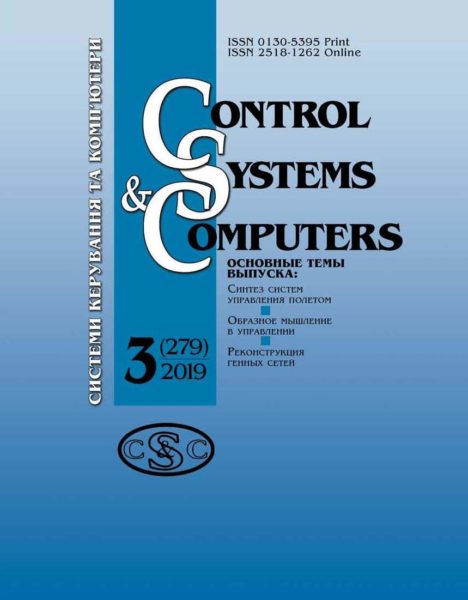Control Systems and Computers, N3, 2017, Article 4
DOI: https://doi.org/10.15407/usim.2017.03.035
Upr. sist. maš., 2017, Issue 3 (269), pp. 35-43.
UDC 62-503
Gritsenko V.I. 1, Timashova L.A. 2
1 Corresponding Member of the NAS of Ukraine, E-mail: vig@irtc.org.ua,
2 Doctor of Technical Sciences, E-mail: dep190@irtc.org.ua,
International Research and Training Centre of Information Technologies and Systems of the NAS and MES of Ukraine, Glushkov ave., 40, Kyiv, 03186, Ukraine
The Internet of Things in the Structure of the Clever Enterprise
Introduction. The creation of completely automated system of the operation monitoring of the devices and people in real time is one of the most perspective direction of the clever enterprises development. Its major characteristics are a mobility, a possibility of access to the necessary information at any time, in any place and from any devices.
Purpose. Problems and technologies of the Internet of Things (IoT) use are considered, as the stage of the long and not ended yet revolution in the field of computing systems and the means of communication. The Internet of Things is a term that defines all the expanding complex of the intelligent devices connected to each other.
Methods. The technological component when built-in devices are the «Things» in the Internet is worked out, their distinctive features are: data collection with low recurrence and the small volume of the used data. These devices exchange data with each other and provide data via user interfaces. Some built-in devices from the Internet of Things require a broadband streaming. But most of them require transmission of data packets only from time to time. The same as people receive the new methods of access to the world by means of smartphones, Internet of Things will create a new paradigm providing the continuous access to necessary information.
Results. The Internet of Things concept, its origin and development features at the present stage of the innovative economy formation in Ukraine and the world are listed.
Conclusion. The Internet of Things technology is an important direction of a large interindustry technical problem – the intellectualization. The effect of this direction will increase in process of the development of the models, figurative thinking and intellectual management allowing in the conditions of incomplete information making the balanced and weighed decisions. It is important to develop the perspective means of information processing, which along with calculations, are capable to implement the difficult models of the artificial thinking.
Keywords: Internet of Things, artificial thinking, clever enterprise, intellectualization, making decisions.
Download full text! (in Russian)
- Gritsenko, V.I., Timashova, L.A., 2016. “Smart Enterprise” as a basic object of the digital economy”. Upravlausie sistemy i masiny, 5, pp. 54–66.
- Gritsenko, V.I., Timashova, L.A., 2017. “Intelligent sensor systems is a technical basis of a digital economy of the smart enterprise”. Upravlausie sistemy i masiny, 1, pp. 19–25.
- Onufriev, V.A., Poletaev, E.V., Sharopin, Yu.B. Building wireless sensor networks based on the One-Net protocol stack. http://www.sworld.com. ua / index.php/ru / technical-sciences / informatics-computer-science-and-automation/2781-onufriev-ba-eb-poletayev-ub-sharopin
- Chernyshev, N.N., 2011. “Distributed automatic control system for hydrogen sulphide gas flaring”. Pragi luganskogo vіddilennya of the International Academy of Informatization, 1 (23), Lugansk: Lugansk of the International Academy of Informatization, pp. 89–95.
- Alevsky, D.A., Plekhanov, A.E., Yamanov, A.D., 2011. “Technology deployment of local wireless radio networks ZigBee in industrial automation and dispatching systems”. PMIS, 6 (36), pp. 26–32.
- Song, J., Han, S., Mok A.K., et al., 2008. “Wally Pratt Wireless HART: Applauding Technology in Real-Time – Industrial Process Control”. IEEE Real –Time and Embedded Technology and Applic. Symp., pp. 378–386.
- Kupriyanovskiy, V.P., Namiot, D.E., Sinyagov, S.A., 2016. “Cyber-physical systems as the basis of the digital economy”. Int. J. of Open Information Technologies, 4 (2), pp. 18–25.
- Kupriyanovskiy, V., Ishumuratov, A., Namiot, D.,
Received 23.06.2017



